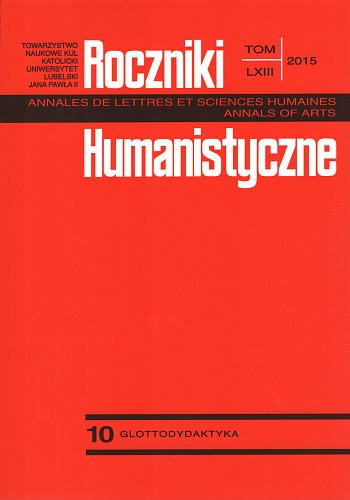Wiedza profesjonalna jako atrybut tłumacza: implikacje dla edukacji translatorycznej
Subject-Matter Knowledge for Interpreters and Translators: Educational Implications
Author(s): Hadrian Lankiewicz, Emilia Wąsikiewicz-FirlejSubject(s): Foreign languages learning, Translation Studies
Published by: Towarzystwo Naukowe KUL & Katolicki Uniwersytet Lubelski Jana Pawła II
Keywords: LSP;translation;subject-matter knowledge;education of translators and interpreters;
Summary/Abstract: In the contemporary world the translator and interpreter is expected to be furnished with quality language skills designated by a socio-economic-political domain for which the service has been ordered. The objective of the article is to accentuate the importance of language for specific purposes in educating translators and interpreters for the market needs. Additionally, assuming that language for specific purposes is marked by conceptual differences between languages, we put forth the need for developing professional subject-matter, knowledge-based competence as a prerequisite for quality translation. Thereby, we foresee that the future of translators and interpreters’ education lies in a very narrow specialization, for example, in translating government documents, medical texts, etc. The presupposed hypothesis is verified against the survey research in which practitioners and students articulate their expectations and the shortcomings in their education.
Journal: Roczniki Humanistyczne
- Issue Year: 63/2015
- Issue No: 10
- Page Range: 91-108
- Page Count: 18
- Language: Polish

